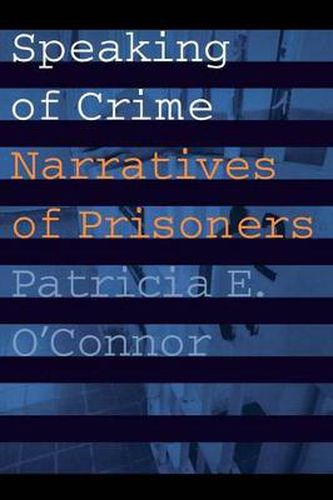Readings Newsletter
Become a Readings Member to make your shopping experience even easier.
Sign in or sign up for free!
You’re not far away from qualifying for FREE standard shipping within Australia
You’ve qualified for FREE standard shipping within Australia
The cart is loading…






This volume explores how inmates speak of their lives and in particular how they speak of crime. What is the power of speech for prisoners? What do their uses of pronouns and choices of verbs reveal about them, their experiences of violence, their relationships with other prisoners, and their likelihood for change? In this book, Patricia E. O'Connor probes beneath the surface of prison speech by examining over one hundred taped accounts of narratives of violence made by African-American inmates of a U.S. maximum security prison. The inmates’ manner of speaking about their lives and acts of violence-not just what they talk about but how they talk about it-supplies important clues to their senses of identity and feelings of agency. The use of second-person pronouns when speaking about themselves and a reliance on distinctive verbal devices such as irony and constructed dialogue provide important insights into the way prisoners see their world and help condition how they interact with it.
$9.00 standard shipping within Australia
FREE standard shipping within Australia for orders over $100.00
Express & International shipping calculated at checkout
This volume explores how inmates speak of their lives and in particular how they speak of crime. What is the power of speech for prisoners? What do their uses of pronouns and choices of verbs reveal about them, their experiences of violence, their relationships with other prisoners, and their likelihood for change? In this book, Patricia E. O'Connor probes beneath the surface of prison speech by examining over one hundred taped accounts of narratives of violence made by African-American inmates of a U.S. maximum security prison. The inmates’ manner of speaking about their lives and acts of violence-not just what they talk about but how they talk about it-supplies important clues to their senses of identity and feelings of agency. The use of second-person pronouns when speaking about themselves and a reliance on distinctive verbal devices such as irony and constructed dialogue provide important insights into the way prisoners see their world and help condition how they interact with it.